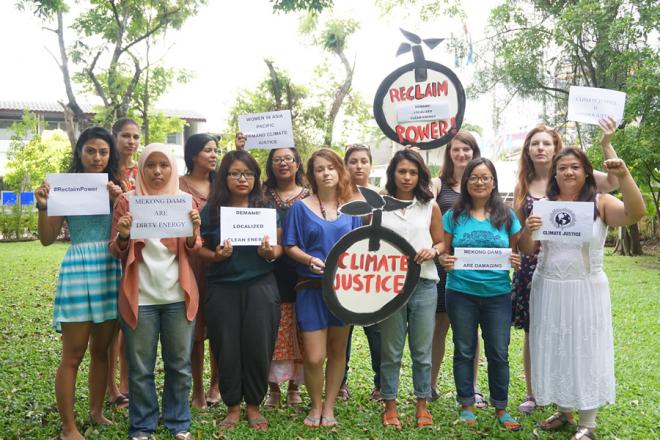Responding to climate change requires radical rethinking of our energy systems. But what should these changes look like – in politics, in economics and in our lives?
Movements globally are developing visions and solutions for a fairer energy future. A First Nation community in Alberta is installing solar panels while resisting tar sands extraction. The residents of a housing estate in London are rejecting an enforced switch to more expensive, privatised heating. The National Union of Metalworkers in South Africa is working out a just transition strategy. German cities are re-municipalising energy supply.
We know there’s no one answer. Focusing solely on small-scale renewable energy projects won’t provide the scale of transformation needed and doesn’t redistribute political power. Yet large-scale renewables – like Desertec in the Sahara or proposed mega-dams in the Cordillera region of the Philippines – can become tools of colonial or extractivist exploitation.
In struggles about energy, trade unions, frontline communities, and democratic energy enterprises are also sites of knowledge.
We are running a pilot online peer learning course to:
- Pool some of this expertise
- Bring people together from different sectors and places
- Share and develop experience, analysis and visions
- Foreground Global South and marginalised perspectives.
What
This is an experiment. A free, pilot course we are running for the first time. You, the participants, will shape its future. Later on, we plan to disseminate lessons online and possibly through an open online course (MOOC).
When
November-December 2016. The provisional date for the first meeting is 2 November 2016. The time of the course will be set according to the participants time zones.
How
The course is free and will run for 6 weeks. Each week will open up a topic such as: co-operative or municipal controlled energy, labour, technology, de-colonising energy, and energy poverty. Generally, each week’s activities will take 90 minutes to 2 hours:
- A pre-recorded lecture (30 mins);
- A live webinar (an hour) on Wednesdays;
- A short reflection or presentation task that participants will share and discuss with their peers.
A final additional session will evaluate the course and consider next steps.
We aim for a diversity of lectures with contributions (provisionally) from Argentina, Canada, Fiji, Nigeria, South Africa, UK, Uruguay, and the US. Once during the course, each participant will be asked to present their own work, research, or reflections to everyone else.
We’ll also provide:
- Additional reading lists and resources,
- An online discussion platform to connect and share resources.
Who
We are looking for up to 50 participants from the global South and North with some experience in energy systems, who wish to take a holistic and global look at energy systems and politics, and learn from others. They might be involved in energy cooperatives, trade unions, public enterprises, frontline activism, development, studying relevant disciplines, etc.
To secure a diverse range of contributions and to promote effective cross-sector learning we will be seeking a mix of experiences and backgrounds and a broad geographical representation. This may require limiting spaces available to UK, European, and/or North American participants.
How to sign up
Please fill out this form
To accommodate busy schedules, we will try to confirm your place in the week starting 3 October if you filled out your form before then, but the form will stay open after too.
